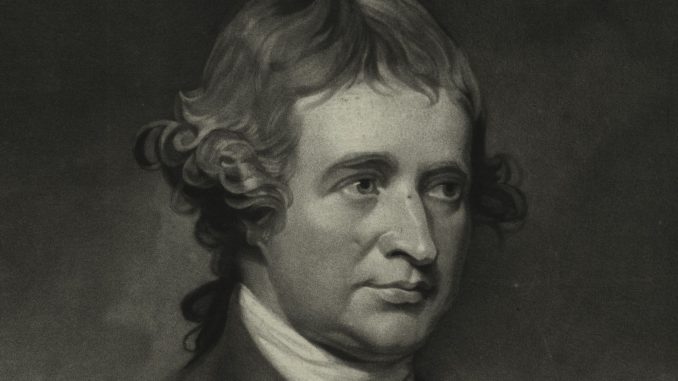
Guest Editorial by Don Sutherland
Imagine the following:
A crew of astronauts blasted off from the Kennedy Space Center in 1985 for a decades-long journey in space. They left behind an America that was experiencing an economic rebirth, an unfolding burst of creativity, and a renewed sense of purpose. It was outward-looking, devoted to spreading freedom worldwide, and improving the well being of all its citizens.
Nearly 25 years later, when the astronauts returned, they would have become badly disoriented from what they saw upon their return. The country’s orientation had turned inward. Advancing freedom abroad and promoting prosperity at home were now viewed as mutually exclusive and at odds with one another. Citizens had been divided into blocs.
Today, a deepening struggle for the soul of conservatism in particular, and nation in general, is ongoing. Principles-based governance is receding in the face of deepening partisan demands. The retreat of principles from the political sphere is widespread. It extends to the “Five F’s”– freedom of religion, freedom of speech, freedom of the press, freedom of assembly, and free markets.
The pursuit of freedom from principles does not advance liberty. It only abandons the “compass” that makes republican government possible, even as the preservation of liberty is the primary purpose for which that government was established in the first place.
In his Reflections on the Revolution in France, Edmund Burke explained:
When ancient opinions and rules of life are taken away, the loss cannot possibly be estimated. From that moment we have no compass to govern us; nor can we clearly know what port we are steering to.
Therefore, conservatism must stand for something. It must be formed from enduring substance. It must offer a strong foundation from which a country can proceed to pursue its opportunities, rally to overcome its challenges, and be inspired by a clear vision of what it seeks to become.
In her 1979 campaign for Prime Minister of the United Kingdom, Margaret Thatcher spoke powerfully of the importance of principle. She told an audience in Cardiff:
I am a conviction politician. The Old Testament prophets didn’t merely say: ‘Brothers, I want consensus.’ They said: ‘This is my faith and vision. This is what I passionately believe. If you believe it too, then come with me.’ Tonight I say to you just that.
In his 1985 State-of-the-Union address, President Reagan proclaimed similar themes:
America is stronger because of the values that we hold dear. We believe faith and freedom must be our guiding stars, for they show us truth, they make us brave, give us hope, and leave us wiser than we were… Proverbs tell us, without a vision the people perish. When asked what great principle holds our Union together, Abraham Lincoln said: “Something in [the] Declaration giving liberty, not alone to the people of this country, but hope to the world for all future time.”
The insights provided by Burke, Thatcher, and Reagan are not exclusive. They were not distributed unequally under the deliberate segmentation of Identity Politics. They are not subject to sudden change at the whim of whomever happens to hold power. They are deep, universal, and timeless.
The populism that is currently sickening the American conservative movement is radically different. It is exclusive. It promotes “alternate facts” to evade enduring truth. It seeks its direction from raw emotion rather than enlightened principle. Put in practice, it renders the nation a prisoner of fate when it would otherwise be the master of its destiny.
Across the landscape of Talk Radio, Fox News, Social Media, and other online platforms, this toxic populism is being pushed as “conservatism”. It is being advanced by calls for tribal loyalty. It is being peddled by appeals to dark conspiracy theories of a “Deep State” and “Silent Coup.” It is being pushed by attacks on institutions and professionals who serve as bulwarks of republican government, including law enforcement, the Intelligence Community, and the news media.
Regardless of how those pushing this populism self-identify, what they are selling is not conservatism. Their product is a vastly inferior substitute. It is unfit for free society.
If they prevail, conservatism may disappear for good from the American political scene and the foundations of the nation’s more than two centuries of republican government could crumble beyond repair. In the Declaration of Independence and Constitution, the nation’s founders gave us the principles in which they passionately believed. Conservatives, and all Americans who believe in these principles must now come to the defense of them.
